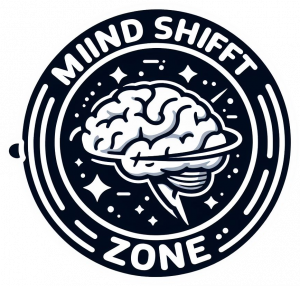The path to success in any aspect of life does not happen by accidental events. It requires effort, intention and an understanding of the direction to follow. If you are involved with coaching whether it’s personal, professional or athletic, the underlying principle of success is the goals you set during the course of the journey. This guide will guide you through the steps of setting and achieving the goals of coaching, allowing you to realize your full potential, and assist others to do the same. Let’s take a look at some coaching goals examples and why they are important and how you can establish them efficiently.
What Are Coaching Goals?
Coaching goals are the milestones and benchmarks that you create to help guide your growth, development and performance. They form the basis of any coaching system serving as the guide to the goal you want to reach. Imagine them as the steps that lead you over the river of uncertainty until you reach the shore of achievement.
Why Setting Coaching Goals is Essential

Imagine setting off on a trip without a map, or GPS. You can drive forever, but you will never reach the destination you want to be. Setting goals for coaching is like setting up your GPS. It will give you a clear direction and a goal. Goals help you focus your efforts, increase confidence, and provide the ability to measure your progress. When goals as a coach are clearly defined they turn vague goals into specific goals and make it simpler to breakdown the obstacles and celebrate successes, however small.
Types of Coaching Goals
Like no two trips are identical, so the goals of coaching are different based on the specific needs of the person coaching. From personal development to professional accomplishment Goals for coaching encompass a variety of aspects of life. Let’s look at some of the most well-known kinds.
Personal Development Goals
Personal goals for personal development stem from the desire to improve yourself and personal improvement. They typically focus on developing traits like resilience, emotional intelligence and self-awareness. For instance, one could make a decision to increase their ability to handle anxiety or boost their confidence when it comes to social situations. The goal is to become the most confident version of yourself and remove the layers of self-doubt or fear to discover your real potential. A goal setting coach can be instrumental in helping you establish and reach these personal milestones.
Professional Development Goals
In the workplace most goal setting coaching focuses on career advancement and enhancement of skills. They could be aimed at learning how to use a new program and enhancing leadership skills or getting ready for a promotion. Goals for professional development bridge the gap between your current position and the place you want to be within your profession. They offer a framework to build confidence and competence and help to climb the corporate ladder or move to a new field. A goal coach can be invaluable in guiding you through this process, ensuring that your coaching and goal setting efforts are aligned with your long-term vision.
Performance Improvement Goals
Coaching goal improvement involves setting specific, measurable goals that are often connected to quantifiable outcomes. They are common in situations where output is tracked, like sales, sports as well as academic performances. A person who is a sportsperson might have an objective to cut the second of their sprint speed, while salespeople might want to close a specific amount of sales within a given month. The goal is to adjust and improve your performance to new levels.
Behavioral Change Goals
The goal of behavioral change is to alter or completely change specific behaviors or habits. Whether it’s changing an unhealthy habit like procrastination or establishing an entirely new one, such as the practice of active listening. These goals may result in transformational modifications in both professional and personal environments. Imagine the help of a coach to help someone move from being a reactive communicator to an active one, and fostering positive relationships in working and personal life. This requires a mix of self-awareness and commitment and, most of the time an abundance of patience.
How to Set Effective Coaching Goals

The setting of goals that will drive change is more than fantasies. It requires accuracy, dedication along with alignment to larger vision. By carefully defining your goals as a coach create a solid foundation that helps you overcome difficulties and helps keep you focused when things get difficult. Here’s how you can create goals for coaching that aren’t only well-defined, but also meaningful and motivating.
The SMART Criteria
The SMART criteria have long been the gold standard in goals, and ensure it’s not just a dream but a reality-based plan. When you make sure that goals are Specific, Measurable, Achievable, Relevant and Time-bound, you can turn your goals into a precise plan. As an example instead of setting goals that are broad like “I want to improve my communication,” A realistic goal could be, “I will enhance my communication by completing an advanced speaking course within the next three months, giving at least three presentations at work during this time.” This will make your progress quantifiable and your timetable concrete. You are aware of what you must accomplish and the time the process will be, and also how you’ll determine success.
The benefit that is this SMART technique is it provides the structure needed to foster creativity without restricting it. It promotes a pragmatic approach to goals, but can allow for creativity and growth, making sure that each goal can be both an obstacle and a chance to learn new abilities.
Aligning Goals with Values and Vision
Based on Positive Psychology, in addition to creating objectives that you can measure, it is essential to ensure they align with your personal values and vision. Imagine setting goals to get too high in your organization’s hierarchy, only to discover that the grueling working schedule conflicts with the values you cherish of time with your family. Goals that do not align with your values and personal goals may result in success on paper, but result in feeling empty. To avoid these pitfalls consider what each goal is in line with your life’s purpose. Are you moving closer to the life that you want to live? Does it reflect who you truly are at the core of who you are? Affiliating your goals to your values guarantees that you’ll not only get to your destination but will also be able to enjoy the journey along the route.
Strategies for Achieving Coaching Goals
Setting clear and unified targets is the very first thing to do however, the next step is usually the most difficult: taking continuous action to meet the objectives. Strategies you use during the course of your journey can be the difference between being successful and stagnation. These strategies are tested and proven. will help you stay on track and overcome any obstacles you encounter while you strive to achieve your goals as a coach.
Regular Monitoring and Adjustment
One of the most effective methods for achieving goals in coaching is to practice continuously monitoring and revising them when needed. Imagine it as sailing a vessel. The wind can change, the currents could shift, and unexpected difficulties could occur. By monitoring regularly your progress, you can ensure that you’re not straying off the course. This could mean reviewing your goals every week or month reviewing your timeline and making minor course adjustments. Monitoring regularly allows you to spot obstacles before they become a problem and make required adjustments, whether that is tweaking your timeline, redefining your goals or changing your plan completely, says The Forbes sources. This proactive approach will help to keep you on track with your goals to ensure that the way to success is simple and manageable.
Accountability Mechanisms
Although self-motivation is essential, external accountability can dramatically improve your capacity to reach your goals. Imagine having someone you can be in contact with regularly, whether it’s a coach, mentor or accountability partner who’s invested in your success. This accountability system is crucial to keep you focused and on track. Knowing that someone is monitoring your progress will keep you on track to follow through with your goals. Additionally, accountability partners are able to give you feedback, push you to work harder and celebrate your successes along with you. When coaching, regular periodic check-ins, progress assessments and feedback loops that are external can ensure that you are making constant progress and keep you committed to your goals.
Celebrating Milestones
The definition of success isn’t just about achieving the ultimate goal, but also about recognizing and celebrating the progress made throughout the process. Recognizing milestones, regardless of what size, can help build the positive outlook and boosts motivation. For instance, if the ambition is to run one, then celebrating the day that you run the first 10k race is crucial. These celebrations aren’t just rewards, but recognition of your progress and efforts. They serve as powerful stimulants in reminding that success doesn’t end at the end of the road, but also through the actions you take on the way. If it’s a treat to yourself with something extra special or simply taking time to think about the progress you’ve made and celebrate milestones, it boosts the drive needed to move ahead and reach for larger goals, says Verywell Mind.
Through the integration of these strategies – regular tracking, accountability from outside and rewarding progress – you create a solid system that helps you stay on track, but also allows you to make the pursuit of your goals an enjoyable and enjoyable experience. The most important factor in achieving success as a coach is not only within the targets you establish however, it is in the method you design to reach them.
Common Challenges in Reaching Coaching Goals
Despite the best intentions and the most effective strategies, the road to reaching the goals of coaching is often rife with obstacles. Knowing these challenges and understanding how to conquer these obstacles is essential to sustain the progress. Every setback provides a lesson and every obstacle is the chance to grow. Let’s look at some of the most frequent obstacles that coaches have to overcome in achieving their goals as coaches and strategies to overcome them.
Overcoming Procrastination and Self-Doubt
Self-doubt and procrastination are among the most ominous obstacles in achieving your coaching goals. These internal struggles can manifest as nebulous slowdowns or crippling indecisions that prevent you from taking the needed steps to move forward. It is often triggered by fear, such as fear of failure, fear of being successful or fear of the unknown. Self-doubt, in contrast, reduces confidence and can lead to an uneasy feeling of inadequacy. To overcome these obstacles it’s important to break goals into manageable, smaller actions and to take action even if doubts remain. Making small gains can slowly reduce self-doubt, and decrease procrastination. In addition, focusing on self-compassion, and seeking help from a mentor or coach can help you overcome the mental blockages with a straight face, and reaffirming your conviction that you’re capable of reaching your goals.
Dealing with Setbacks
According to Psychology Today, failures are inevitable regardless of how well-prepared or focused you are. They can occur in a variety of ways like a missed deadline an unplanned life event, or even an abrupt decrease in motivation. What differentiates successful goal-oriented people from those who don’t is their ability to overcome defeat with grit and determination. Instead of viewing an unfavorable outcome as a loss it’s important to view it as an chance to learn and grow. It is crucial to look at the reasons for the failure and then make the necessary adjustments and then continue to move forward. This attitude transforms setbacks to step-stones rather than blocks. With the ability to build the ability to adapt and be resilient setbacks are transformed into temporary detours instead of dead ends in the path to success.
Conclusion
Making and achieving your coaching goals is a procedure that requires intention as well as commitment and flexibility. Beginning with defining goals based on SMART criteria to aligning them with your personal values The foundation you create in the beginning will set the foundation for the success you’ll achieve. In the process it is essential to track your progress, be accountable, and recognize those milestones which keep you on track. Problems like procrastination doubt, and setbacks can be encountered, but with an appropriate mindset and strategy they can be conquered.
In the end, the process of reaching your goals as a coach is just as important than the objectives themselves. It’s through making plans, executing and overcoming obstacles that transformation and growth happen. By focusing and persevering on the goals you set for your coaching will help you achieve an empowered and more fulfilled future.











